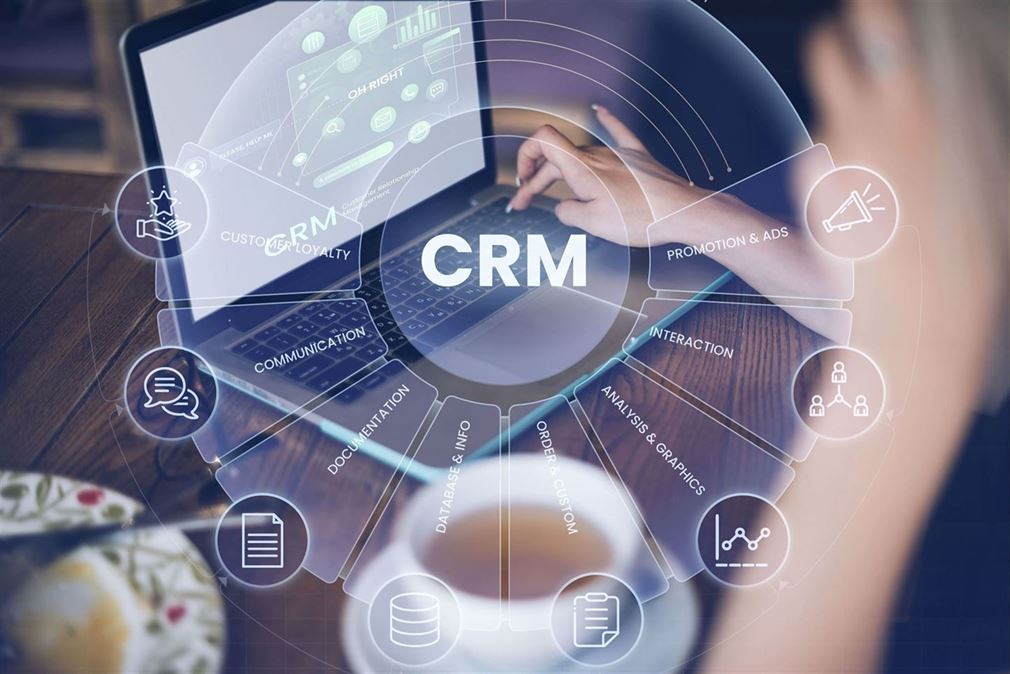CRM software for ecommerce and sales improves customer satisfaction, increases sales growth, streamlines sales processes, automates repetitive tasks, enables better lead generation and tracking, provides more personalized customer experiences, and supports data-driven decision-making through analytics and reporting.
Ecommerce-CRM (E-CRM)

Strategic utilization of these ecommerce-specific features can help build stronger relationships with customers, increase customer satisfaction, and drive sales growth in the highly competitive ecommerce industry.
Customer Contact Management can be streamlined and improved through CRM software, which provides ability to collect and manage customer data across multiple channels, including email, social media, and website interactions, resulting in a more comprehensive and efficient data management system.
Provides a 360-degree view of the customer, including past purchases and interactions, enabling sales teams to tailor their approach and upsell or cross-sell relevant products or services.
Personalization with Ecommerce CRM software can enable businesses to personalize communication with customers by utilizing customer data to tailor product recommendations, marketing campaigns, and communication.
Improved customer relationships can be achieved through the use of OneChannelAdmin CRM, which enables better understanding and communication with customers, resulting in increased customer satisfaction and loyalty.
Streamlined sales processes by automating key sales tasks and providing real-time data, to streamline sales processes, reducing the risk of errors and improving overall efficiency.
Increased Sales Opportunities by analyzing customer data and behavior, CRM can help identify sales opportunities and tailor your marketing efforts accordingly.
Automated Product Marketing Campaigns by automating marketing campaigns and target specific customer segments based on behavior and preferences.
Improved multi channel Order Management to track and manage orders more efficiently, allowing to quickly respond to customer inquiries and complaints.
Integration with eCommerce platforms for centralized location to manage customer data, sales, and marketing efforts. This allows for more personalized communication and targeted marketing campaigns, ultimately leading to increased customer satisfaction and loyalty, and improved sales growth.
Abandoned Cart Recovery by reclaiming Lost Sales and Reducing Cart Abandonment with Ecommerce CRM
Product recommendations can be used to upsell and cross-sell to customers, increasing sales and revenue
Customer segmentation enables improved personalization and targeted marketing efforts by categorizing customers based on common characteristics and preferences.
Customer reviews and ratings provide valuable insights into customer preferences, allowing for reputation improvement and product and service enhancement to better meet the needs of customers.
Email marketing for building and maintaining customer relationships, driving sales growth through targeted campaigns and promotions.
Customer loyalty programs to encourage repeat business and build brand loyalty through rewards and incentives, making them a valuable component of CRM strategy.
Ecommerce analytics provides valuable insights into online performance, including sales and customer behavior, helping make data-driven decisions to improve operations and boost revenue.
Seller performance tracking enables the monitoring of seller activity and operations, allowing marketplaces to maintain high-quality standards, provide better customer experiences, and improve overall performance.
Sales CRM
Enables collaboration and effective team management to streamline the sales process and facilitate cross-functional teamwork between departments like marketing and customer service.
Leads management includes process of capturing, tracking, and analyzing potential customer information to identify qualified leads, and then assigning them to sales representatives to convert them into customers. Effective leads management helps businesses optimize sales processes and improve the efficiency of lead generation strategies.
Deals pipeline is a key feature of CRM systems that provides sales teams with a clear overview of deals in progress and the status of each deal, enabling to focus specifically on the deals that require action to move them forward and ultimately close more deals.
Deals Management sales teams can track deals through the sales pipeline, including deal size, expected close date, and deal stage. This allows for better forecasting and helps prioritize deals to focus on.
Contacts Management centralizes contact information, including email addresses, phone numbers, and social media profiles, enabling sales teams to stay organized and enhance communication with leads and customers.
Sales pipeline tracking provides sales teams with a visual representation of pipeline, to track the progress of each opportunity and identify areas for improvement, enabling to make informed decisions and take action accordingly.
Better collaboration enables sales teams to collaborate more effectively, with shared access to customer data and sales pipeline information.
Sales forecasting allows businesses to generate accurate sales forecasts based on historical data, enabling them to make informed decisions about future sales targets and resource allocation.
Real-time reporting provides real-time reports on sales performance, allowing businesses to monitor progress towards sales targets and identify areas for improvement.
Improved customer experience enables businesses to provide a more personalized and seamless customer experience, with access to customer data and insights that enable tailored interactions.
Increased sales productivity by providing sales teams with a clear overview of their sales pipeline and automated tools to manage leads and deals, CRM systems can increase sales productivity and efficiency.
